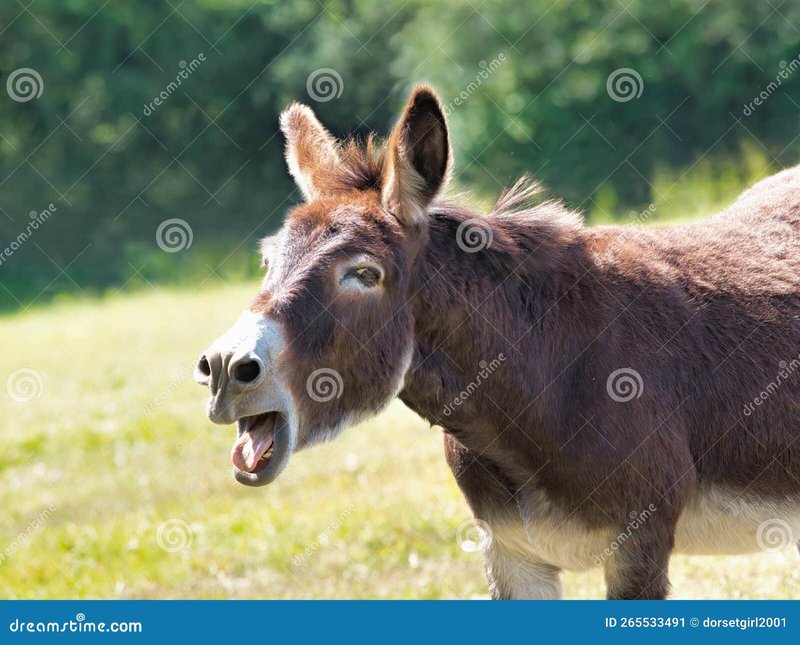
Donkeys have a personality that can only be appreciated when you take the time to understand their behavior. Just like a friend might express excitement through laughter or frustration with crossed arms, donkeys use their own methods of communication. In this guide, we’ll dive deep into the world of donkey behavior, exploring everything from their vocalizations to their social dynamics.
The Meaning Behind Braying
Braying is perhaps the most recognizable behavior of donkeys. You might hear this loud, distinctive sound from a distance, almost like a quirky alarm clock. But why do donkeys bray?
Donkeys bray for various reasons. Communication is key. Picture this: a donkey in the wild sounds off to let others know where they are or to signal that they’re feeling anxious. This loud call can alert herd members about the presence of potential danger or simply let them know they’re nearby. The pitch and frequency can also convey different emotions. For instance, a high-pitched bray may indicate excitement, while a lower tone might reflect discomfort or distress.
On a more personal level, donkeys might bray to get your attention. If you’ve ever heard a donkey calling to a human, it’s usually because they’re looking for interaction. So, the next time you hear that strong, distinctive noise, remember it’s not just noise—it’s a form of conversation.
Understanding Donkey Bonding
Bonding among donkeys is a crucial aspect of their behavior. These animals are social creatures and thrive in the company of others. Think of it like your favorite group of friends—they enjoy hanging out, sharing experiences, and supporting each other.
Donkeys form strong social bonds with each other, often seen nuzzling or grooming as a way to build relationships. This behavior is essential for their emotional well-being. When donkeys are deprived of companionship, they can become stressed or anxious, similar to how humans might feel isolated without their social circles.
When you bring a donkey into your life, fostering that bond is vital. Spend time with your donkey, talk to them, and even engage in gentle grooming. Over time, you’ll build a trusting relationship. Loyal donkeys will often follow their humans around, showcasing their affection and attachment.
Decoding Body Language
Donkey body language may seem subtle at first, but it’s a rich tapestry of signals that reveal their thoughts and feelings. Understanding these cues can help you interact with them more effectively.
Ears are incredibly expressive! A donkey’s ears can tell you a lot about their mood. Ears that are perked up and forward indicate curiosity or interest. In contrast, ears pinned back against their head might mean they’re feeling threatened or upset. It’s similar to how we might furrow our brows when confused or fold our arms when uncomfortable.
Another key behavior to watch is the donkey’s tail. A happy donkey will often swish its tail or hold it high. But when a donkey is frightened or agitated, you might notice them holding their tail tightly against their body. Just paying attention to these small details can lead to a better understanding of your donkey’s feelings and needs.
Common Misconceptions about Donkeys
There are quite a few myths floating around about donkeys that can skew our understanding of their behavior. Some people think donkeys are stubborn or lazy, but that’s far from the truth.
Stubbornness is often a misunderstanding of their intelligence. Donkeys are highly intelligent creatures, sometimes more so than horses. If a donkey seems stubborn, it’s usually because they’re assessing a situation and determining if it’s safe. Unlike horses, who may be more inclined to follow instinctively without thought, donkeys will often think twice, leading to their perceived stubbornness.
It’s essential to approach donkeys with respect and patience. Building trust with them can reveal their true nature, which is often kind, playful, and incredibly loyal. When you recognize their intelligence, you’ll be better equipped to understand their behavior.
Social Hierarchies Among Donkeys
Just like in human societies, donkeys have their own social hierarchies. If you’ve ever watched a group of them, you might notice some donkeys taking the lead while others follow.
The hierarchy is primarily established through interactions. Dominant donkeys may assert themselves through behaviors like nudging others or displaying protective stances. Submissive donkeys might respond with gentle movements or retreat to show they mean no harm. This balance is crucial when you have multiple donkeys; understanding their social dynamics can help prevent conflict.
If you’re introducing a new donkey to your existing herd, do it gradually. Allow them to meet in a neutral space to minimize stress and jealousy. Observing how they interact will give insight into their social structure and help you facilitate a peaceful integration.
Nurturing Healthy Relationships
Creating a positive environment for donkeys goes beyond just meeting their physical needs. Nurturing a healthy relationship with them is essential for their behavior and well-being.
Routine and consistency play a significant role in building trust. Donkeys thrive on routine, so try to establish a regular feeding and grooming schedule. This predictability can help them feel secure and more relaxed in their environment.
Additionally, interactive play is an excellent way to strengthen your bond. Whether it’s offering treats or engaging them in gentle play, these moments can enhance your relationship. Just like any friendship, the time and effort you invest will yield warm, loving connections.
Understanding donkey behavior is about more than just learning about their braying or body language—it’s about building a connection with these captivating creatures. From their unique vocalizations to their fascinating social structures, every aspect reveals their rich personalities.
As you spend time observing and interacting with donkeys, you’ll start to see how they express themselves and form bonds. Just like any friendship, patience and time are vital. So, whether you’re a proud donkey owner or just curious about these wonderful animals, embracing their behavior opens up a world of joy and connection.
Remember that donkeys, like all animals, have their own unique personalities. So dive in, learn, and enjoy the beautiful connections waiting for you in the world of donkeys!

